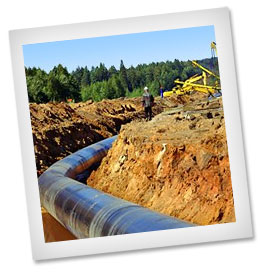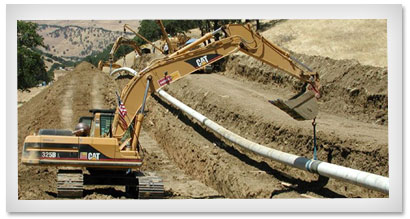Pipeline Engineer
DESCRIPTION
Pipeline engineers direct, review and approve the preparation of pipeline project drawings and other engineering documentation required for permitting, right-of-way acquisition, bidding and construction. They must have knowledge of compliance with contract information requirements, codes, and standards regulated by the client, governmental agencies, regulatory departments, environmental and land subcontractors, landowners, contractor(s) and others.
Pipeline engineers perform technically complex engineering assignments including pipeline route selection with consideration of variables such as constructability, environmental and right-of-way impacts. With their knowledge of construction methods, they create gas and liquid pipeline designs for intrastate and interstate pipeline systems. Pipeline engineers identify pipeline construction/operation limitations and suitable alternatives, and assess and resolve change orders proposed by contractors, or other company sources.
Pipeline engineers travel to job sites and project meetings as necessary. They may serve as technical experts in meetings with customers and vendors. They manage internal and external inspections and analyze data to assess the operational life of pipelines.
Pipeline engineers direct field survey exercises and oversee quality control of field data and participate in route variation approvals as needed. In conducting field survey exercises, pipeline engineers utilize the latest pipeline industry technology such as desktop GIS/GPS databases, and GIS/GPS field reconnaissance equipment to establish control points, gather detailed centerline survey data and collect property boundary data.
Pipeline engineers use specialized computer software to collect, process and evaluate data, prepare reports and complete mathematical and engineering calculations.
EMPLOYERS
Pipeline engineers are employed by utility companies, petroleum companies, construction companies, maintenance contractors, civil engineering firms, and engineering consultant firms.
EDUCATIONAL REQUIREMENTS
A bachelor’s degree in engineering is typically required for this occupation, some employers also require a master’s degree in engineering.
LINKS TO CAREER/INDUSTRY RESOURCES
Meet Ranmali Gunapala, Pipeline Engineer: https://www.youtube.com/watch?v=Rszop-HyZMI
Get into Energy Career Profile: Engineer: http://getintoenergy.com/engineer/
American Pipeline Contractors Association (APCA): http://www.americanpipeline.org/
Association of Oil Pipe Lines (AOPL): http://www.aopl.org/
Interstate Natural Gas Association of America (INGAA): http://www.ingaa.org/
American Petroleum Institute – Natural Gas: https://www.api.org/oil-and-natural-gas/consumer-information/in-the-classroom/energy-resources
Education-Portal.com – How to Become a Pipeline Engineer: Education and Career Roadmap: http://education-portal.com/articles/How_to_Become_a_Pipeline_Engineer_Education_and_Career_Roadmap.html
Photos courtesy of Argonne National Laboratory and Pacific Northwest National Laboratory.


ABOUT US
Get Into Energy / Get Into STEM is a ground-breaking program designed to build awareness among students, parents, teachers, guidance counselors, and others about the value of STEM (Science, Technology, Engineering, and Mathematics) education and the excellent career opportunities available in the energy industry.
Get Into Energy / Get Into STEM is managed by the Center for Energy Workforce Development (CEWD), a non-profit consortium of electric, natural gas, and nuclear utilities and their associations.
CONTACT US
Email: staff@cewd.org
Phone: 202-638- 5802
Fax: 202-508- 5030
Address:
CEWD
701 Pennsylvania Ave. N.W.
3rd floor
Washington, DC 20004-2696
© 2024 Center for Energy Workforce Development. All Rights Reserved.
